Complicated Fiserv Subsidy Earns First Approval
Complicated deal includes $7 million for financial company, $4.6 million for neighborhood improvements.
The complicated subsidy agreement to bring financial technology services company Fiserv’s global headquarters, and 780 employees, Downtown took a key step forward Thursday.
The Redevelopment Authority of the City of Milwaukee unanimously endorsed the $7 million agreement, sending it to the Common Council for review. The Wisconsin Economic Development Corporation must also approve a still-undisclosed subsidy agreement. The city’s agreement will also provide $4.6 million to make nearby public improvements.
“We’re excited to be here. It was intentional. It was a thoughtful, deliberate process,” said Fiserv senior vice president Ryan Smith to the board. The company’s headquarters currently are in Brookfield, though the vast majority of its 40,000-member workforce is outside of Wisconsin.
The move has been several years in the making. In 2017 the Fortune 500 company confirmed it was considering multiple sites in Milwaukee, but never moved. In 2019 it acquired First Data Corporation for $22 billion and set about restructuring or closing several dozen of its offices spread across the country.
“That got our attention,” said Department of City Development economic development specialist Dan Casanova, noting the potential for the company to move to Georgia or another location.
Smith said the company had approximately 200 locations after the merger and is working to reduce that by approximately 70. It maintains major offices in Brookfield, suburban New Jersey, Georgia, Nebraska and Florida and an executive office in New York City. It opened a new $106 million, 428,000-square-foot office in Berkeley Heights, NJ on Tuesday that is to be home to 3,000 employees.
The agreement is structured as a developer-financed tax incremental financing (TIF) district. The city would effectively rebate increased property tax revenue from the development over a period of no more than 20 years. Fiserv would be eligible to collect up to $7 million plus 4.5% interest. Unlike a traditional TIF district, the agreement places no risk on the city if the development fails to yield the expected increase in property tax revenue. The existing property tax revenue from the property would continue to flow to the city and other property taxing entities under the proposal, with only the increase diverted.
To earn the full subsidy, Fiserv must eventually employ at least 780 full-time equivalent employees at the site. The agreement sets a four-year ramp-up period that starts at 580 employees in 2024 and grows to the full amount in 2027. Casanova said 250 of the employees must be new employees to the region.
A full-time employee is defined as any employee that works at least 35 hours per week, receives healthcare benefits and is paid more than 150% of the federal minimum wage. Workday occupancy at the facility must be at least 60% of the reported full-time employee count. Similar to the Milwaukee Tool agreement, Fiserv can count employees who live in the city but work from other facilities or at home as part of the total.
The city, said Casanova, would ensure compliance using keycard access data provided by the company and other reporting data.
And even if CEO Frank Bisignano never works a day in the building, the company must refer to the facility as its “global headquarters” in marketing materials.
Fiserv would lease the southern portion of the first floor as a lobby with the offices and cafeteria on the third, fourth and fifth floors.
Smith said the company would see a visibility boost from locating its headquarters near Fiserv Forum, the basketball arena for which it holds the naming rights.
The term sheet calls for all janitorial, security and food service workers to be paid at least $15 per hour and given protections in accordance with the council’s 2019 CORE resolution for downtown development.
But Peter Rickman, president of Milwaukee Area Service and Hospitality Workers Organization and the leading proponent of CORE, said the $15 per hour figure is outdated given the way the labor market has shifted since 2019. He said it was important for Fiserv to ultimately enter into a community benefits agreement similar to what the Milwaukee Bucks did at Fiserv Forum which provides for union rights. The labor leader said he hopes adhering to the CORE resolution becomes the standard operating procedure going forward.
The terms of the deal require a handful of other provisions of Fiserv, including having 40% of the project’s construction work hours performed by unemployed or underemployed city residents. Fiserv is required to maintain an average of three tech apprenticeships as part of the subsidy and provide small business resources and counseling at the Near West Side Partners‘ Concordia 27 development.
The project plan calls for Fiserv to start construction by June 2023 and substantially complete work by the end of 2024.
“We believe that the overall benefits of the project justify the city’s investment,” said Casanova. He said it would create spillover benefits, including increasing activity downtown, bringing more jobs to the city, reducing the amount of vacant office space and supporting Mayor Cavalier Johnson‘s goal of growing the city to one million residents.
The eight-story Boston Store Building was acquired by Chicago-based North Wells Capital in 2017 and fully redeveloped as HUB640 following the department store chain’s 2018 bankruptcy and subsequent liquidation. North Wells planned to strategically redevelop the former Boston Store Building, but that work was expedited when Bon-Ton went from downsizing to liquidation. In 2021, the company gutted and rehabbed each of the former Bon-Ton floors. New common spaces were developed and a portion of the loading dock structure was converted to a rooftop deck.
Working with Founders 3, North Wells successfully attracted North Shore Healthcare, Eight Eleven Group and Abacus Architects to the building. Engberg Anderson Architects and Kelly Construction & Design led the design and construction on the redevelopment.
He said his company is also in the process of purchasing the parking structure to the west, 615 N. Vel R. Phillips Ave., currently owned by Zilber Ltd. and operated by Interstate Parking. “Fiserv will be parking almost the entirety of that garage,” said Lindsay. Bon-Ton employees once used the garage, accessing it via a skywalk.
A 2017 $1.9 million TIF subsidy was given to North Wells and Bon-Ton to reconfigure the building to retain the retailer by downsizing its footprint. Casanova said $608,000 was spent on interior demolition and the rest remained in escrow, until being returned to that larger TIF district after the retailer’s liquidation. Despite Bon-Ton’s dissolution, the interior demolition work ultimately benefited North Wells’ redevelopment.
The city expects to pay off its new obligation to Fiserv by year 16 of the agreement and the public improvements by year 20.
The building, legally three condominiums, is expected to climb in assessed value from $26.4 million to $59.6 million. Included in the district is the 74-unit apartment building at the top of the building. Developed by the Mandel Group nearly two decades ago, North Wells now owns the units.
Public Improvements
In addition to subsidizing Fiserv, the city would use the TIF district to fund $4.6 million in public improvements in the area. The revenue would come from increased property tax payments by North Wells Capital on behalf of Fiserv, Kohl’s and a handful of other office tenants it has landed.
The city would spend $2.5 million to make improvements to W. Michigan St. between the Milwaukee River and N. 6th St. Fiserv’s front door is expected to face the street. Improvements include traffic calming elements, an all-ages bike facility, new pavement, street trees, landscaping, signals, street lighting and stormwater features.
“It’s a pretty stark streetscape there right now,” said Casanova.
A total of $750,000 would be allocated to the partial development of Vel Phillips Plaza on the city-owned parking lot a block west of the development. Initially proposed in 2019 as part of a proposal to extend the streetcar system, the plaza would now first move forward without the transit improvement. At the time, the full plaza was estimated to cost $5 million. The city is seeking a private developer to construct a structure on the remainder of the site.
“We are going to come back to you in early 2023 with the final design and budget for that,” said Casanova.
The plaza would be along the former N. 4th St., now named for Vel Phillips. The civil rights trailblazer was the first black woman to graduate from the University of Wisconsin Law School, and the first woman and first African American elected to the Common Council. She was also the first female judge on the Milwaukee County Circuit Court and the first African American judge in Wisconsin. In 1978 Phillips became the first woman elected to the office of Secretary of State, becoming the first African American to ever win a statewide election.
The public improvements also include $1 million for streetscaping improvements around HUB640, executed by North Wells Capital and advanced on a reimbursement basis.
Milwaukee County would receive $100,000 to make improvements to Zeidler Union Square, which is immediately south of HUB640.
Approximately $75,000 would be allocated to improvements to the intersection of N. 6th St. and W. Michigan St. The proposal includes removing high-speed turn lanes and adding traffic calming elements and pavement. The intersection is to see its traffic volume increase with the redevelopment of The Avenue, Milwaukee Tool and Fiserv’s relocation and the proposed Iron District.
Additionally, $175,000 would be placed in a public improvements contingency fund.
The Common Council must still review the agreement.
A copy of the proposed TIF district authorization document is available on Urban Milwaukee.
HUB640 Redevelopment Photos
2019 Vel Phillips Plaza Renderings
HUB640 Aerial Photos
Former Boston Store
If you think stories like this are important, become a member of Urban Milwaukee and help support real, independent journalism. Plus you get some cool added benefits.
More about the Fiserv Relocation
- See Inside Fiserv’s New Headquarters - Jeramey Jannene - Mar 4th, 2024
- Plats and Parcels: Unusual Sign Will Resolve Kohl’s-Fiserv Conflict - Jeramey Jannene - Feb 4th, 2024
- Eyes on Milwaukee: HUB640 Owner Buys Parking Structure For Fiserv - Jeramey Jannene - Mar 6th, 2023
- Milwaukee Night Market Returns June 14 - Jeramey Jannene - Feb 27th, 2023
- Eyes on Milwaukee: State Approves Its Half of Fiserv Subsidy - Jeramey Jannene - Feb 9th, 2023
- Eyes on Milwaukee: Fiserv’s Move Downtown Is About Attracting ‘Young, Diverse’ Workers - Jeramey Jannene - Dec 6th, 2022
- Eyes on Milwaukee: Complicated Fiserv Subsidy Earns First Approval - Jeramey Jannene - Nov 17th, 2022
- Eyes on Milwaukee: City’s Fiserv Subsidy Includes Vel Phillips Plaza Funding, Michigan Street Upgrades - Jeramey Jannene - Nov 3rd, 2022
- Fiserv Moving Headquarters, More Than 750 Employees Downtown - Jeramey Jannene - Oct 27th, 2022
- Plats and Parcels: Fiserv Again Flirts With Relocating Headquarters - Jeramey Jannene - Jul 17th, 2022
Read more about Fiserv Relocation here
Political Contributions Tracker
Displaying political contributions between people mentioned in this story. Learn more.
- May 29, 2020 - Cavalier Johnson received $50 from Peter Rickman
- April 22, 2019 - Cavalier Johnson received $50 from Lafayette Crump
- March 16, 2016 - Cavalier Johnson received $100 from Peter Rickman
Eyes on Milwaukee
-
Church, Cupid Partner On Affordable Housing
 Dec 4th, 2023 by Jeramey Jannene
Dec 4th, 2023 by Jeramey Jannene
-
Downtown Building Sells For Nearly Twice Its Assessed Value
 Nov 12th, 2023 by Jeramey Jannene
Nov 12th, 2023 by Jeramey Jannene
-
Immigration Office Moving To 310W Building
 Oct 25th, 2023 by Jeramey Jannene
Oct 25th, 2023 by Jeramey Jannene


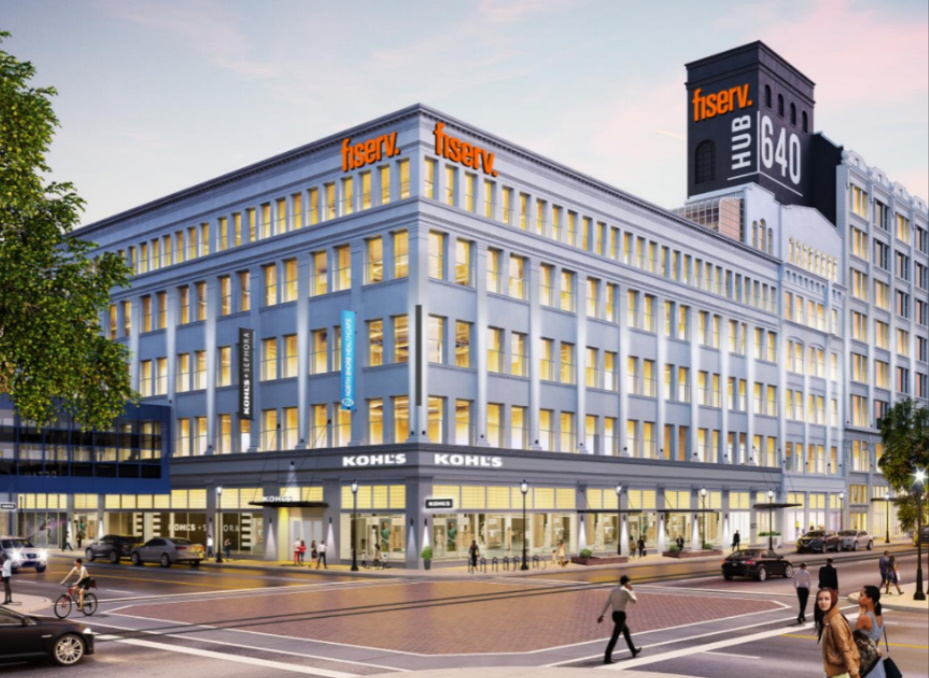
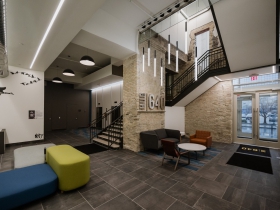




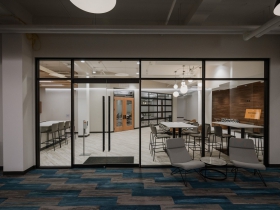
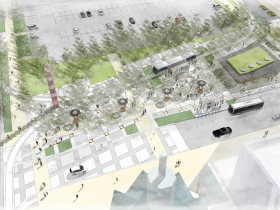
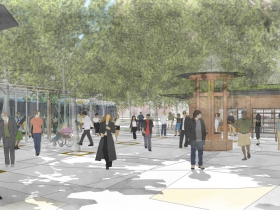
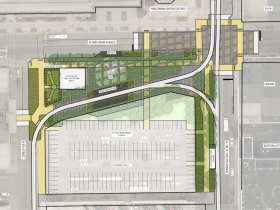
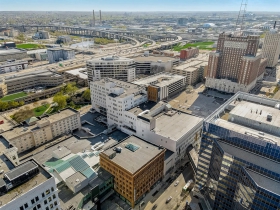
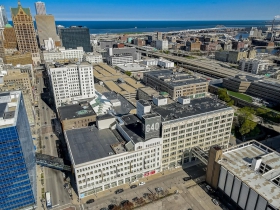
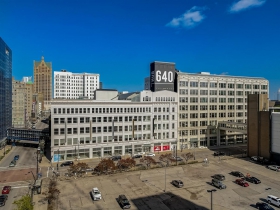



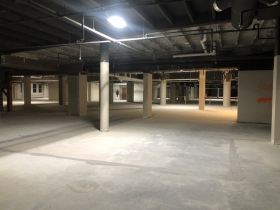




















Jeramey, when you say the front door is expected to face the street, are you meaning Michigan Street? I was under the impression it would be facing Vel Phillips.
Thank you Mr. Jannene for the detailed explanation of this multilayered financial agreement. You took something hard to understand and made it understandable. You are certainly a wordsmith.
Since the Redevelopment Authority meeting , we have learned publicly that the Fiserv Corporation made $1.7 Billion in the first 3 quarters of 2022, and the V.P. indicated to The Business Journal that no other location made sense for their headquarters, based on the investments made in Milwaukee and their employees here.
No one in Milwaukee would say anything unwelcoming to a great company entering our City. Please , let it be known that this foregone tax revenue$ that the City gave up ” in negotiation” is entirely understandable.
Please, let it also be known that as this company secures a pittance from our City, these foregone tax revenues could have gone to filling the empty ” splash pads” in neighborhood parks for our babies, or opening the closed pools, or restoring a bus route to enable a citizen to a job, or filling a pothole that causes one to lose their transportation. This is Milwaukee outside of Downtown.
This company, and many others, give generously to worthy causes. I fail to understand how the most privileged in our society can ask a City in distress to give them money.
Together, we could create a City where children can play, and Downtown workers can thrive.
Sincerely,
Marty Wall